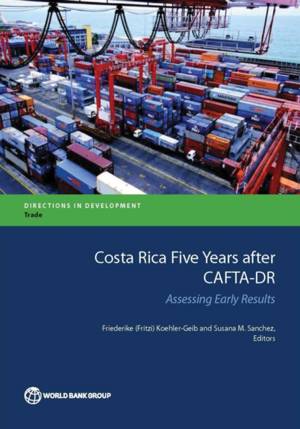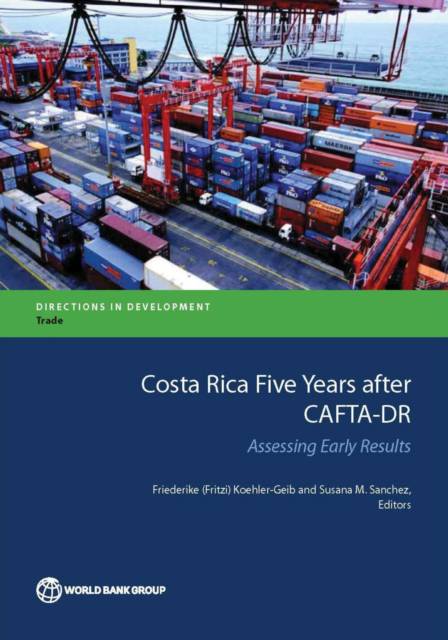
Bedankt voor het vertrouwen het afgelopen jaar! Om jou te bedanken bieden we GRATIS verzending (in België) aan op alles gedurende de hele maand januari.
- Afhalen na 1 uur in een winkel met voorraad
- In januari gratis thuislevering in België
- Ruim aanbod met 7 miljoen producten
Bedankt voor het vertrouwen het afgelopen jaar! Om jou te bedanken bieden we GRATIS verzending (in België) aan op alles gedurende de hele maand januari.
- Afhalen na 1 uur in een winkel met voorraad
- In januari gratis thuislevering in België
- Ruim aanbod met 7 miljoen producten
Zoeken
Costa Rica Five Years After Cafta-Dr
Assessing Early Results
€ 36,45
+ 72 punten
Omschrijving
For Costa Rica, the Dominican Republic-Central America free trade agreement (CAFTA-DR) has been more than a trade agreement. Costa Rica has used trade liberalization and promotion of international trade as a core development strategy for decades. CAFTA-DR consolidated benefits that had previously been unilaterally extended under the Caribbean Basin Initiative into a multilateral free trade agreement, providing a more stable environment for trade relationships. Beyond just being a trade agreement, CAFTA-DR opened up state monopolies in telecommunications and insurance, which polarized the country. No other trade agreement has generated as much controversy about the potential impacts on the economy. Following a referendum, with a small margin in favor of the agreement, Costa Rica was the last member country to ratify CAFTA-DR in 2009. Given the controversy at the time, Costa Rica Five Years after CAFTA-DR: Assessing Early Results takes stock of the early impacts of CAFTA-DR during the five years since its ratification, addressing the following questions: - What actual changes did the agreement bring about, and what was their context? - What was the impact of those changes on trade and foreign direct investment flows? - How have the high-tech, insurance, telecommunications, and pharmaceutical sectors been impacted?
Specificaties
Betrokkenen
- Uitgeverij:
Inhoud
- Aantal bladzijden:
- 140
- Taal:
- Engels
- Reeks:
Eigenschappen
- Productcode (EAN):
- 9781464805684
- Verschijningsdatum:
- 11/06/2015
- Uitvoering:
- Paperback
- Formaat:
- Trade paperback (VS)
- Afmetingen:
- 178 mm x 254 mm
- Gewicht:
- 258 g

Alleen bij Standaard Boekhandel
+ 72 punten op je klantenkaart van Standaard Boekhandel
Beoordelingen
We publiceren alleen reviews die voldoen aan de voorwaarden voor reviews. Bekijk onze voorwaarden voor reviews.








